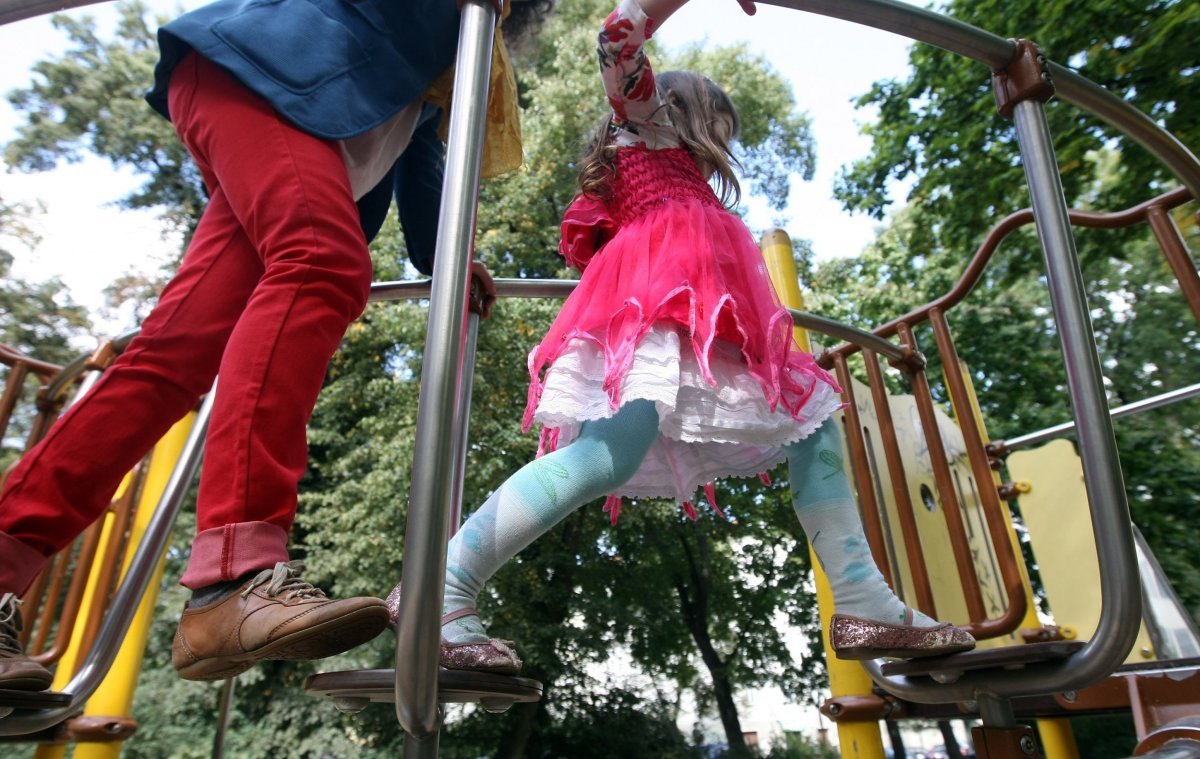A regular object of ridicule on the jungle gym, the "helicopter parent" has inspired countless analyses that paint a disturbing picture of over-dependence and stunted emotional maturity in affected children. To confirm what playground gossipers have long muttered under their breath, researchers of a new study literally took candy from a child.
Children of over-controlling mothers experience heightened emotional problems, poor social skills and limited academic success throughout elementary school, says a study published Monday in the journal Developmental Psychology. Starting as young as 2 years old, children of "helicopter moms" developed dependent behaviors that limited their control over their emotions and inhibitions and hindered their achievement as pre-teens.
In a study of over 400 American children and their mothers, more than half white and more than 80 percent married, psychologists measured children's emotional and cognitive development at ages 2, 5 and 10 over the course of eight years. At 2, mothers were asked to play with their child, then work with him or her to clean up toys. Mothers who attempted to structure the activity and issue repeated commands to their toddler were rated as highly controlling. At the same age, children with observed aggression and destructive behaviors were likely to portray poor social skills, less success in school and more emotional problems at 10.
To measure 5-year-old children's ability to manage their frustration, researchers divvied candy between themselves and the child, allocating more to their own pile and then taking some from the child. Teachers also rated their students' in-class behavior, academic behavior and observed social skills at ages 5 and 10. Students reported their own perceptions of their behavior, personality and emotions at 10 to measure levels of depression, anxiety and inability to cope.

Lead author Nicole Perry concluded children whose mothers exhibited more domineering behavior were more likely to have school outbursts, have difficulty making friends and struggle academically, all indirectly caused by their inability to act for themselves or cope with anxiety brought on by heightened level of perfectionism.
"Although many overprotective parents may be trying to protect their child and shield him or her from harm, these parents may be receptive to parent training to afford their child the opportunity to develop appropriate self-regulatory skills and better overall adjustment by preadolescence," she wrote.
The children were enrolled in school between 1994 and 1996 and came from diverse socio-economic backgrounds. The group was largely white.
Children from higher-earning families were more likely to control their inhibitions and achieve academic success. But as children grew up, their parents' grip lessened, researchers found.
The damage caused by overparenting extends throughout children's lives. In 2013, researchers found that college students of helicopter parents reported higher levels of depression and dissatisfaction, which they chalked up to the "violation of students' basic psychological needs for autonomy and competence." Another study found it guilty of causing "stunted development" in young adults, and 2011 findings suggested children were at a higher risk of recreational use of pain pills.
To be sure, lax "permissive parenting" can also inhibit children's future success. The parenting style, characterized by few rules, more freedom and less "hovering," was similarly linked to lower grades, higher rates of future substance abuse and low self-control.
Uncommon Knowledge
Newsweek is committed to challenging conventional wisdom and finding connections in the search for common ground.
Newsweek is committed to challenging conventional wisdom and finding connections in the search for common ground.
About the writer
Scottie is a Newsweek science fellow and student at the University of Florida. Her work has appeared in Women's Health, the Gainesville ... Read more
To read how Newsweek uses AI as a newsroom tool, Click here.








